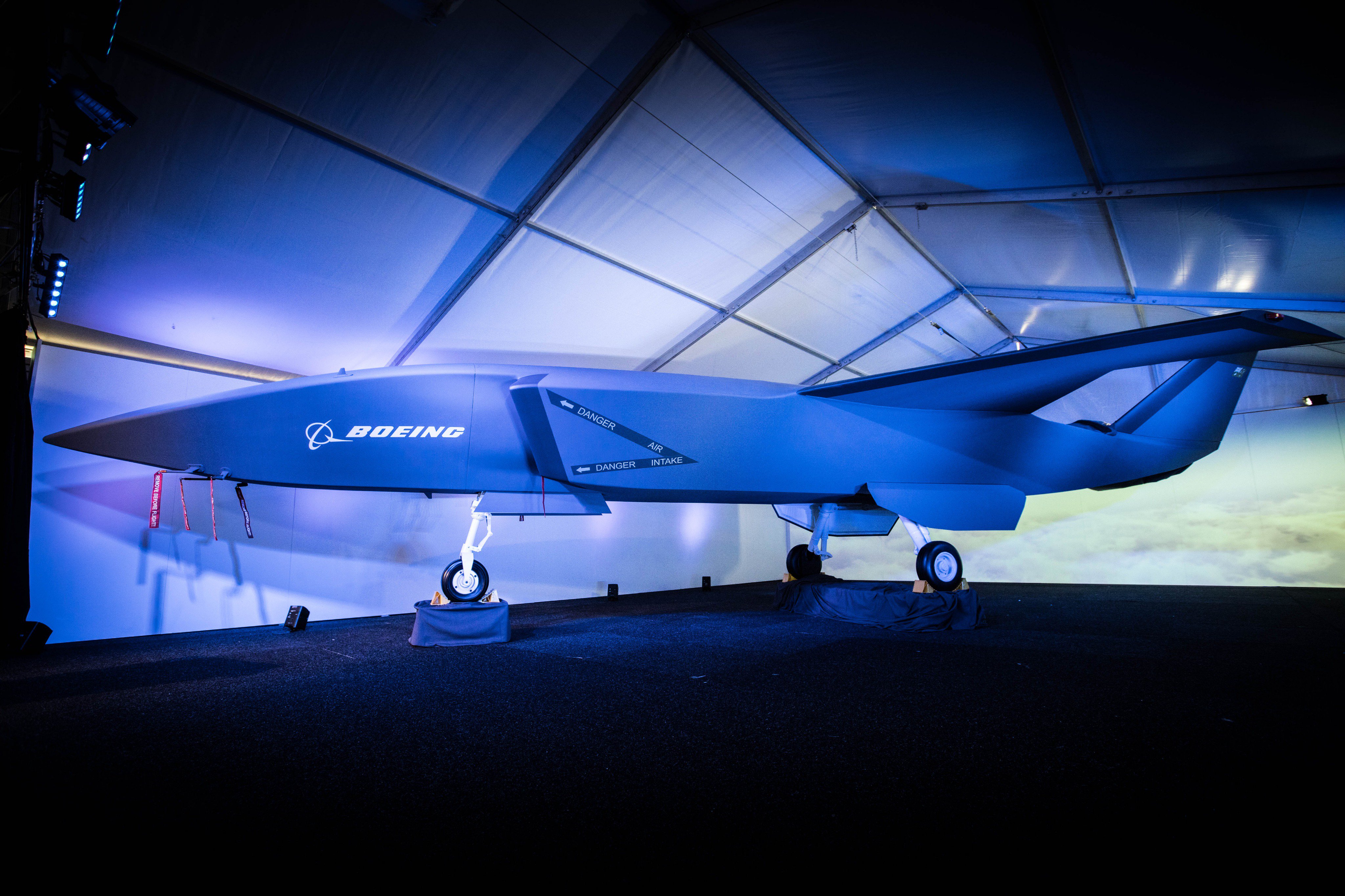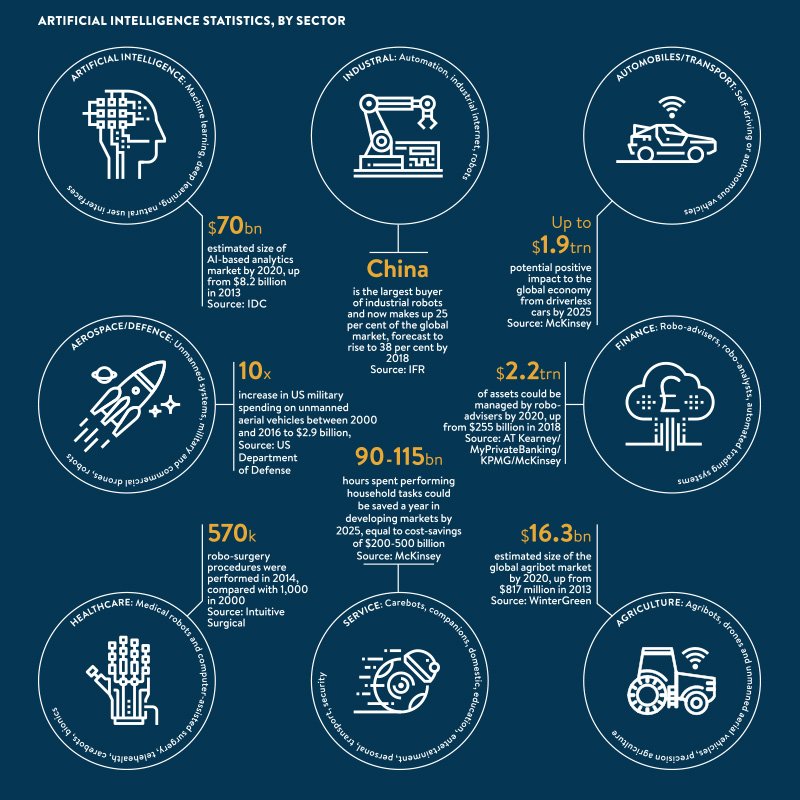The US-based SAE International (formerly known as the Society of Automotive Engineers,) is going to organize an AeroTech Event at the Pasadena Convention Center in California on March 15-17, 2022. Top engineers, executives, and professionals of the world will assemble there to discuss and address the fundamental issues and opportunities facing the aerospace industry now and in the future.
China Prepares To Seize A ‘Trillion-Dollar Industry’; Pushing The World Towards Another World War?
Artificial Intelligence (AI) in the industry, particularly the defense sector, is going to be a hot topic at the event, it is said.
It is being increasingly realized in the strategic circles that the aerospace and defense companies are now leading the way in artificial intelligence. A just-released thematic analysis of the data and analytics company GlobalData has revealed that the aerospace, defense, and security (ADS) industry is now steadily increasing the number of unfilled positions in 2021, a development that reflects the industry’s tech revolution.
And this trend will continue throughout 2022, says the company. Among the jobs in demand, robotics and artificial intelligence are the leaders. AI sector deals have grown by 33.5% in the past 12 months, with the average deal valued at $159-million, according to GlobalData.
US Tech Firms Leading The AI Race
For instance, Leidos, the Virginia-based American engineering company that specializes in defense and aviation, advertised for 1,007 new artificial intelligence jobs from October 2020 to September 2021, registered three patents, and mentioned artificial intelligence in company filings eight times.
Similarly, Boeing has indicated good levels of AI investment, with the company looking for 793 new AI jobs since October 2020 and mentioning artificial intelligence in filings five times.

Even other defense-centric companies like Raytheon, General Dynamics, and Northrop Grumman have also announced AI-based development projects and product releases. Like Boeing, Lockheed Martin, and Airbus have also invested in AI startups through their venture arms.
“AI is a transformative technology in defense because of its ability to enable militaries to gather and make use of large amounts of data, potentially providing a competitive edge over their adversaries.
AI will be of particular use in the development of unmanned vehicles, which have the potential to reduce operations costs while exposing personnel in the field to less risks,” says GlobalData associate analyst William Davies. Many agree with him that AI will play an integral role on and off the battlefield.
The ‘DARKHORSE’: IAF Veterans Bet Big On SAAB Gripen Fighters Over Rafales For India’s MMRCA 2.0 Tender
AI applications range from autonomous weapons, drone swarms, and manned-unmanned teaming to other functions, such as intelligence, surveillance and reconnaissance, logistics, and cyber operations.
AI In Aerospace Sector
Even otherwise, AI is proving to be of great help in a wide range of other applications in aerospace, some of which are particularly noteworthy.
In the area of ‘product design’, AI algorithms can evaluate and streamline design and manufacturing systems from an assortment of design alternatives in the shortest possible time. AI-powered generative design, combined with 3D printing, can be utilized to deliver different aircraft parts, be it turbines or wings.
AI can considerably reduce the use of billions of gallons of fuel by fabricating lightweight parts with the assistance of 3D printing. It can also help aerospace companies in improving their fuel efficiency. It is said that a plane uses fuel at the highest rate in the climb stage.
Here, it is said that AI models can analyze how much fuel is expended in the climb period of various aircraft and by numerous pilots to create climb stage profiles for each pilot. These profiles can streamline fuel utilization during the climb stage. By utilizing AI-created climb stage profiles, pilots can adequately preserve fuel during flights.

In fact, artificial intelligence can be utilized to improve even pilot training. It is said that AI simulators can help pilots in having realistic training. AI-enabled arrangements inside a cockpit can improve a flight path progressively by evaluating and alerting about the fuel level, frameworks status, climate conditions, and other vital parameters.
It is also pointed out how the aircraft could be equipped with brilliant cameras fueled by computer vision algorithms, extending the visual field of pilots, and in this manner supporting their safety performance.
AI can play a big role in the maintenance of aircraft, which is universally acknowledged to be essential for the best performance. Cloud-based applications, facilitated by AI, are now being used by Airbus for data processing, retrieval, and analysis to increase aircraft maintenance efficiency.
Algorithms can detect and track possible faults in real-time and forecast the most appropriate repair times, resulting in more intelligent maintenance schedules.
How AI Boosts Supply Chain Management
Other than saving/monitoring fuel and boosting operational performance, AI is also becoming crucial for business leaders to explore and leverage the benefits of artificial intelligence in efficient supply chain management and improved customer service.
However, because of its very nature of strengthening automation, AI in developed aerospace industries in the West may compel these companies to reconsider their decisions to invest in the defense industries of the developing world, including India. And that is bad news for these countries.

The rise of automation means that companies don’t have to worry as much about the cost of labor when choosing where to invest. As of now, companies like Boeing and Lockheed were seeking low-paid workers, even if that meant building long, complex supply chains. That no longer is going to be a dominant model.
As it is, countries like the United States and those in Europe (except perhaps Germany) bore the brunt of the job losses as they promoted much more economical supply chains in other parts of the world.
The AI may or may not restore jobs in the mother countries of these aerospace industries, but it can certainly take away jobs in the supply chains that they have created elsewhere. These companies think that their future now hinges better on innovation and digital technology that are associated with AI.
Of course, there are no imminent threats to the regional supply chains that the dominant players in the aerospace industry have created or are creating. Still, there are formidable attractive factors such as access to resources, the speed at which firms can get their products to consumers, and the skills available in the workforce that go in favor of the supply chains. But the long-term implications of AI cannot be ignored.
- Author and veteran journalist Prakash Nanda is Chairman of Editorial Board – EurAsian Times and has been commenting on politics, foreign policy on strategic affairs for nearly three decades. A former National Fellow of the Indian Council for Historical Research and recipient of the Seoul Peace Prize Scholarship, he is also a Distinguished Fellow at the Institute of Peace and Conflict Studies. CONTACT: prakash.nanda@hotmail.com
- Follow EurAsian Times on Google News




